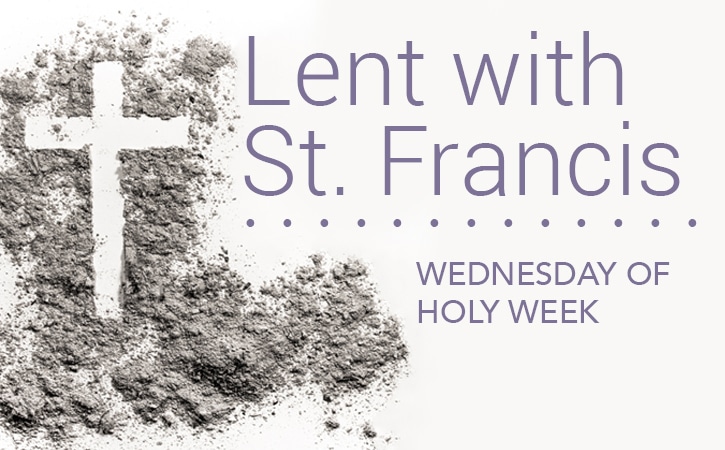Wednesday of Holy Week
Isaiah 50:4–9a;
Psalm 69:8–10, 21–22, 31, 33–34;
Matthew 26:14–25
“Surely not I, Lord?” —Matthew 26:22
Yesterday we heard John’s account of the betrayal by Judas. Today we hear the same story from Matthew’s Gospel. The first three days of Holy Week focus almost exclusively on the act of betrayal by one of Jesus’s twelve closest followers. Matthew tells us that the Twelve were deeply distressed by Jesus’s prediction of betrayal. They each questioned him, saying, “Surely it is not I, Lord?”
We can see in their question that each one may have suspected that he might be capable of it, that his faith wasn’t as strong as it might be. I suspect they were also horrified because, like us, they had all known betrayal at one time or another in their lives. It’s something that strikes at the heart of relationships, at the trust that we rely on to keep us in community and family.
Do we always end up betraying Jesus at some point? We are all sinners. We all need salvation, again and again and again. And so we come to the paschal mystery, the suffering, death, and resurrection of Jesus. St. Francis reminds us:
Remember the words of our Lord, Love your enemies, do good to those who hate you (Matthew 5:44). Our Lord Jesus Christ himself, in whose footsteps we must follow (see 1 Peter 2:21), called the man who betrayed him his friend, and gave himself up of his own accord to his executioners. Therefore, our friends are those who for no reason cause us trouble and suffering, shame or injury, pain or torture, even martyrdom and death. It is these we must love, and love very much, because for all they do to us we are given eternal life.
Prayer
All praise be yours, my Lord,
through Sister Moon and Stars;
In the heavens you have made them, bright
And precious and fair.
Amen.








